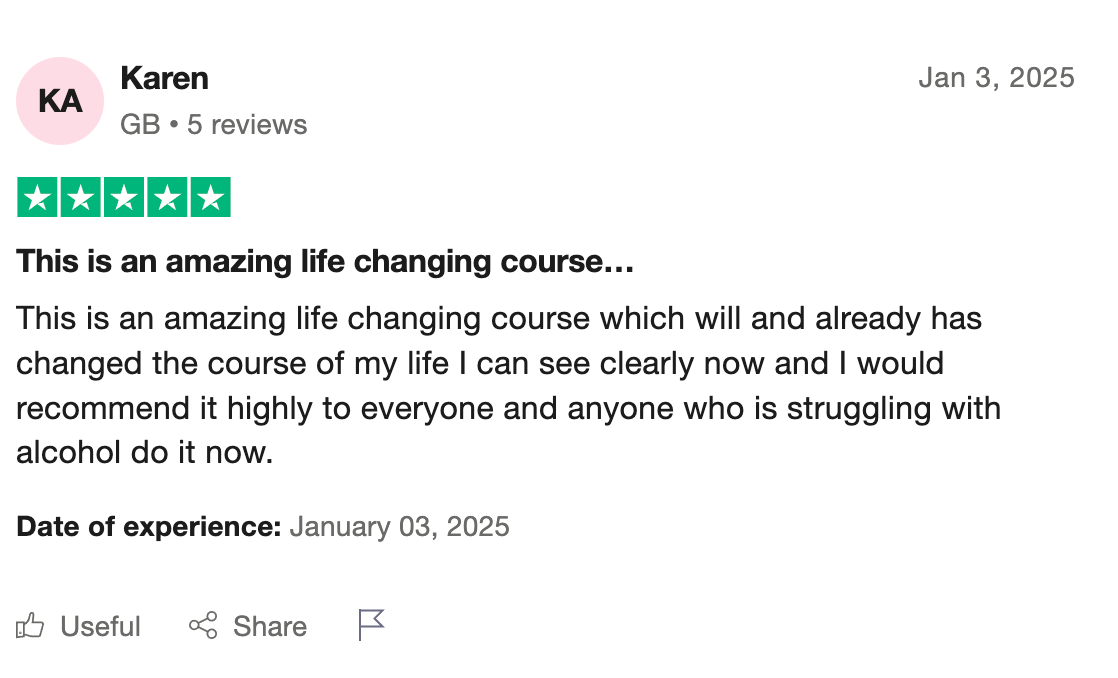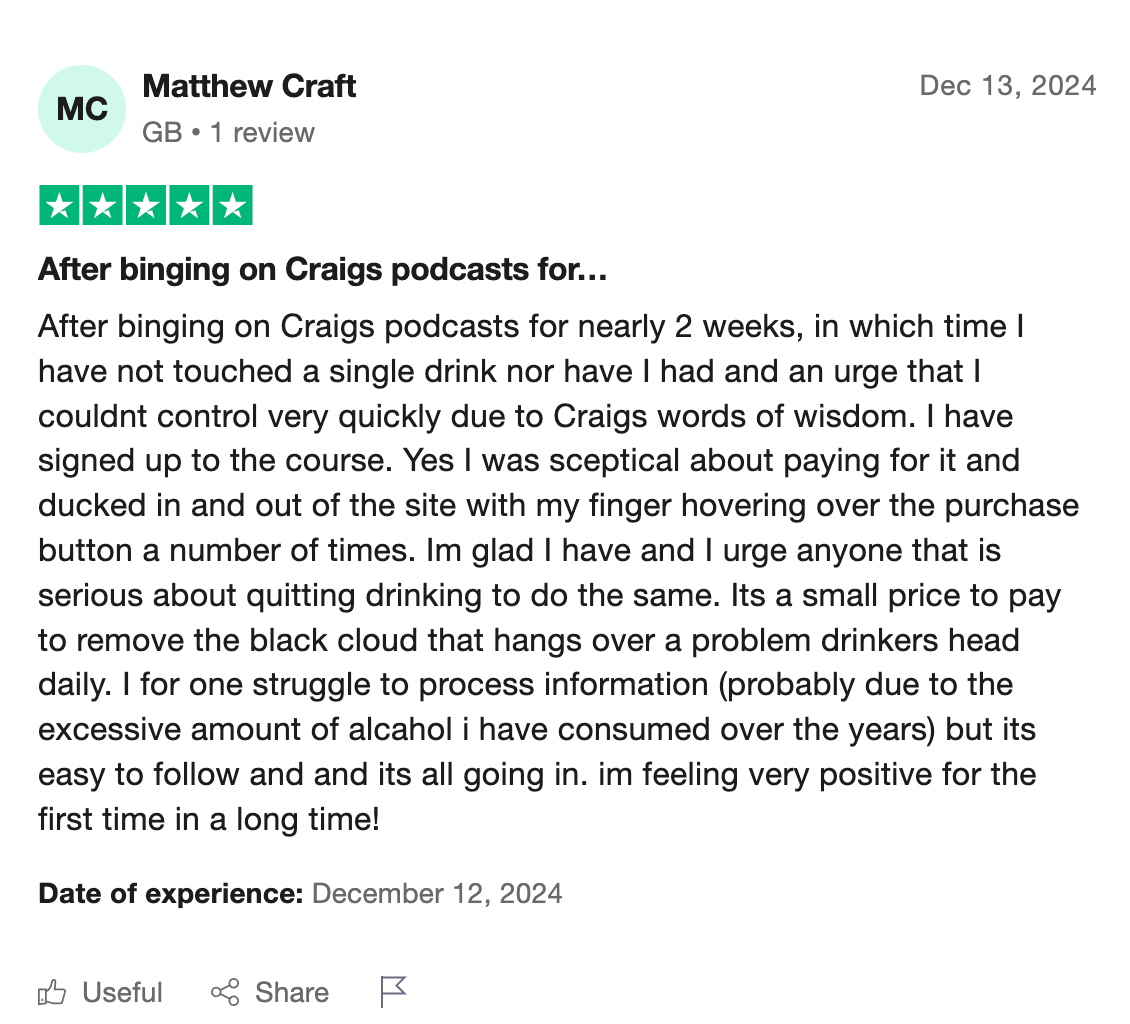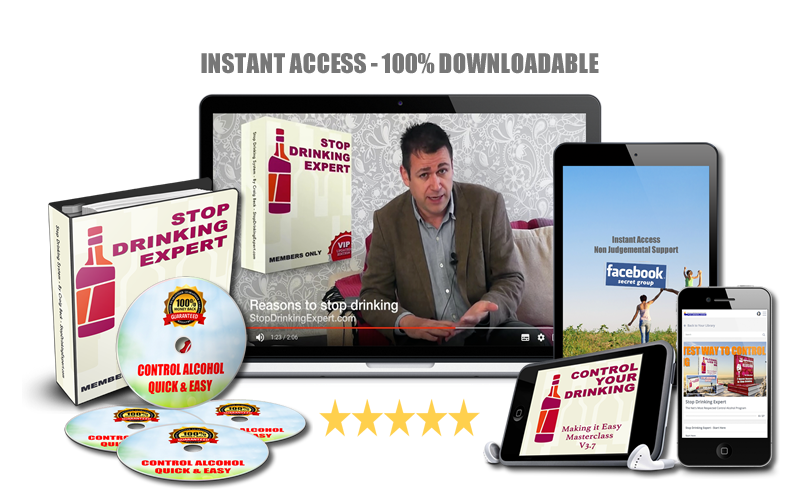How To Protect Your Liver From The Damage Of Alcohol
The liver never sleeps. While you chat, dance, or scroll through late-night memes it dissects every drop of alcohol, converts harmful toxins into harmless waste, and still manages to store vitamins for tomorrow’s breakfast. Picture a busy shipping port running around the clock because cargo never stops arriving. When that workload doubles, scar tissue crowds healthy cells and the docks start clogging. Luckily you can lighten the traffic before things grind to a halt.
First you need honest numbers. How many units last week? Many drinkers shrug and guess because measuring feels awkward. Yet the organ does not work with guesses, it processes real ethanol molecules. Spend seven days writing everything down. You might spot patterns: quiet Mondays, hectic Fridays, creeping Sunday brunches. Awareness flips on the floodlights; problems hate bright rooms. With data in hand you can plot strategic change instead of random vows.
A simple swap often sparks momentum. Replace that habitual early-evening pour with chilled sparkling water plus lime. The ritual survives yet the poison stays out. Tastebuds rebel for two nights then adapt because biology loves equilibrium. Your wallet joins the celebration when costly rounds vanish. Redirect that cash toward colourful produce that delivers antioxidants straight to each hepatocyte. Carrots, blueberries, peppers, even humble broccoli step up as microscopic bodyguards.
You may wonder whether moderation really shields the liver. Research shows even so-called “social” levels trigger fat deposits that set the stage for inflammation. No surprise the World Health Organization keeps trimming “safe” guidelines. Rather than chase a moving target aim for clear alcohol-free windows. Two consecutive dry days each week give enzyme systems time to patch and polish. Many readers notice brighter skin after the very first mini-break.
Understanding The Liver’s Daily Marathon
Every sip begins a relay. Stomach walls pass ethanol to the bloodstream in minutes. Hepatocytes seize the load, convert it to acetaldehyde, then scramble to mop up that toxic by-product before it scorches DNA. While this biochemical sprint unfolds the liver must still regulate hormones, balance glucose, and manufacture proteins that stop bruises. Imagine running a marathon while solving Sudoku puzzles. Add extra drinkers cheering from the sidelines and you grasp the strain.
Genetics sets starting positions. Some individuals wield faster variants of alcohol dehydrogenase which speed the first lap, others carry sluggish enzymes that leave toxins loitering. Yet every liver shows similar scars if the barrage continues. Doctors measure gamma-glutamyl transferase to catch the earliest cries for help. Elevated figures whisper before pain erupts. A quick blood test offers a crystal-ball glimpse; use the result as a scoreboard not a verdict.
Curiosity often leads readers to deeper dives, and the post on reversing liver damage explains those lab markers step by step. Knowledge kicks away superstition. When you understand the mechanism the pint loses its glamour because you watch the gears grind in real time. That mental movie often proves more powerful than any scare poster in a clinic.
However, numbers only start the story. Lifestyle choices finish it. Sleep, stress, sugar, and smoking each steer the outcome. You cannot out-jog a bottle; exercise helps but ethanol always outruns treadmills. Aim for a holistic upgrade rather than a single gimmick. Stack small wins. Drink more water. Walk at lunchtime. Add turmeric to soup. Each act resembles a vote for health. Enough votes tip the election and vitality gets sworn in.
Hydration: The Simplest Shield
Water sounds dull until you view it as solvent, courier, and cooling system combined. Ethanol dehydrates by forcing kidneys to dump fluid. Dehydration thickens blood, slows nutrient delivery, and strains hepatic blood flow. A tall glass between wines cushions the blow. Better still, start the evening with two generous tumblers before any alcohol passes your lips. The fluid flood dilutes concentration, nudges you toward slower sipping, and keeps tomorrow’s headache at bay.
Electrolytes enhance the effect. Add a pinch of sea salt plus half a squeezed orange to the second glass. Sodium escorts water into cells while vitamin C hunts free radicals. Athletes rely on similar mixes during desert races; your liver runs an even longer distance when cocktails line up. The beauty lies in cost. Tap water and fruit outshine pricey detox tonics hawked on late-night adverts.
Mindful sipping also trains the brain. Every deliberate pause breaks the trance that bars cultivate. You notice music volume, laugh at recycled jokes, perhaps see the bored server checking a watch. Those flashes of clarity chip cracks in the illusion that alcohol equals fun. Over weeks the cracks widen until the whole theatre set collapses. Then real enjoyment, unmasked and vivid, steps into the spotlight.
Readers chasing broader health improvements may enjoy the article on benefits of quitting drinking. It lists ripple effects from stronger immunity to sharper memory. The liver stands centre-stage in that orchestra, conducting every other system with quiet authority. Protect it and the melody transforms.
Nutrition That Nurtures Hepatocytes
Food writers love superfood lists though the liver prefers balance. Focus on fibre, coloured vegetables, lean protein, and healthy fat. Fibre sweeps away surplus estrogen, toxins, and cholesterol that the liver packages for departure. Oats at breakfast act like tiny brushes scrubbing bile. Add chia seeds for extra omega-three and viscosity drops even further which eases circulation. A handful of walnuts later in the day delivers glutathione precursors the master antioxidant every hepatocyte craves.
Spices deserve attention. Curcumin in turmeric, allicin in garlic, and gingerols in ginger combat inflammation. Sprinkle them over roasted veg not processed pizza. Whole foods arrive with enzymes intact; ultraprocessed items resemble retirement homes for nutrients. Each missing vitamin forces the liver to rob internal banks further exhausting reserves. Cooking from scratch might feel rustic though your future self will applaud with clean laboratory results.
Milk thistle often appears in supplement adverts. Its silymarin complex shows promise yet works best alongside lifestyle overhaul. Popping capsules while gulping chardonnay mirrors fitting a smoke alarm inside a burning shed. Tackle the flames first. Readers curious about plant-based aids can explore our milk thistle guide for balanced perspective.
Finally, do not fear healthy fat. Olive oil, avocado, and flaxseed support hormone production and chaperone fat-soluble vitamins. Trans fats do the opposite, driving non-alcoholic fatty liver which teams up with alcoholic damage for a double strike. Choose oils that remain liquid at room temperature; nature signals stability through consistency. If the bottle pours slowly on a chilly morning your cells will thank you.
Strategic Alcohol-Free Windows
Short breaks deliver surprising dividends. Forty-eight hours without alcohol allows triglycerides to fall, enzymes to stabilise, and sleep cycles to deepen. Schedule those windows on busy workdays then enjoy natural energy instead of caffeine top-ups. As confidence rises extend the gap. Many readers move from two days to Dry January then never look back. They realise life without fog tastes sweeter than any vintage.
During these windows keep rituals alive to dodge boredom. Mix lime, mint, and soda in a tall glass. Use your best stemware. Light a candle. Celebration revolves around intention, not ethanol. The article on the best time to quit explains how choosing meaningful dates boosts follow-through. Align a break with a birthday or charity challenge and social pressure flips from temptation to support.
Sleep quality surprises many newcomers. The first week minus alcohol often brings vivid dreams, deeper slow-wave cycles, and earlier natural waking. Morning runs feel lighter; skin gains a satin sheen because hydration finally sticks around overnight. Even stubborn belly fat begins melting when late-night kebabs lose their drinking partner. Momentum snowballs. One improved habit nudges another until you stand in a cascade of positive feedback.
Blood pressure joins the celebration. Alcohol dilates vessels temporarily then rebounds with constriction. Repeated swings scuff the lining and invite plaques. A fortnight of sobriety smooths those waves. Curious readers can explore details in our post on alcohol and blood pressure. Lower numbers mean lighter cardiac workload and fewer pounding headaches.
Stress Management That Does Not Involve A Bottle
Many drinkers self-medicate anxiety. Yet ethanol spikes cortisol hours later creating a vicious loop. Break that circle with breathwork, nature walks, or cold showers. A five minute box-breathing session lowers sympathetic arousal more effectively than a pint yet leaves reaction time sharp. Pair relaxation with journalling. Writing siphons worries onto paper, freeing mental RAM for creative solutions. Over time you train the nervous system to reach for oxygen instead of merlot.
Community multiplies resilience. Join a running club, volunteer at an animal shelter, or attend online peer meetings. Connection releases oxytocin, the antidote to stress hormones. Even digital friendships count when you share progress and cheer victories. Humans thrive in tribes. Alcohol pretends to bond yet often isolates. Real companionship grows in sober soil because conversations stretch beyond slurred anecdotes.
Build a stress tool-box before cravings hit. Stock herbal teas, scented candles, weighted blankets, or upbeat playlists. The brain loves options. When one strategy feels stale choose another. You would not wear winter boots on a beach; similarly rotate coping tools based on context. Preparedness eliminates panic and empowers choice. Power tastes delicious.
If loneliness drives drinking consider the insights in our piece about drinking to escape reality. Recognising triggers turns them into targets. Once named, monsters shrink.
Medical Check-Ups And Early Intervention
Regular blood panels guide your journey. Ask for ALT, AST, GGT, and fasting lipids. Compare results every six months and chart them on a simple spreadsheet. Watching numbers drift downward feels as rewarding as shrinking credit-card debt. Doctors appreciate proactive patients; you save them detective work. Bring a log of drinks, sleep scores, and exercise minutes. Data tells a coherent story, guesswork mumbles.
Imaging scans like ultrasound spot fatty infiltration long before symptoms. Non-invasive fibroscans measure stiffness that hints at fibrosis. Early discovery allows reversal. Delay turns sprouts into brambles. If tests raise alarms do not panic. The liver possesses extraordinary regenerative talent. Remove the assault, feed it nutrients, support circulation, and new tissue blooms. Researchers call this resilience miraculous; your future self will simply call it fortunate.
Medication sometimes assists. Doctors may prescribe antiviral treatment for hepatitis or recommend statins for cholesterol. Follow guidance precisely. Supplements may complement but never replace professional care. Beware unverified internet cures that promise overnight detox. Healing resembles gardening not fireworks. Consistent water, sunlight, and pruning nurture vibrant blooms. The same slow steady pattern rebuilds hepatic architecture.
One useful benchmark involves waist measurement. Visceral fat crowds the liver and breeds insulin resistance. Aim for a waist-to-height ratio below half. Tape measures beat bathroom scales because muscle weighs more than fat. Resistance training two sessions a week raises insulin sensitivity and spares collagen from glycation. Body composition influences organ health far beyond mirror aesthetics.
The Psychological Pivot: From Deprivation To Liberation
Many fear that quitting means missing out. This mindset frames alcohol as prize not poison. Flip the narrative. Picture the drink as a pickpocket who steals sleep, money, and self respect while whispering flattery. Once exposed the thief loses charm. Craving transforms into indignation. You do not long for stolen property, you demand its return.
This cognitive reframing anchors the method inside *Alcohol Lied To Me*. Craig Beck unpacks cultural myths, marketing fantasies, and peer pressure illusions. Readers report light-bulb moments where desire evaporates rather than fights. Willpower then acts as safety net not primary engine. Imagine climbing with a harness; fear shrinks because a secure line catches slips.
Download the complete guide free at StopDrinkingExpert.com. Set aside one evening, brew herbal tea, and read the first three chapters. Highlight lies that once hooked you. Sleep on those revelations. Next morning notice subtle shifts. The pub sign may look dull, supermarket aisles less magnetic. Momentum begins in the mind before appearing in blood tests.
Hand the link to friends who struggle. Community transformation accelerates personal success. When a mate swaps lager for kombucha your own choice firms. Shared progress sparks humour, celebrates milestones, and generates inside jokes that do not rely on slurred punchlines. The future starts collective yet feels gloriously individual.
Pulling It All Together
Your liver stands ready to rebound. Provide rest, real food, steady hydration, and psychological freedom. Track numbers, gather allies, enjoy sober pleasures. Within weeks eyes whiten, mornings brighten, and ambition stretches. Months later scans amaze clinicians. Years down the line you forget the taste of hangover because vitality monopolises memory. No fancy gadget delivers such compound interest on effort.
Every journey starts with one step, and downloading *Alcohol Lied To Me* counts as that step. The file costs nothing yet might save everything. Click, read, act, then share. Protecting the liver ultimately protects dreams, relationships, and laughter. The dockworkers inside your abdomen salute every wise decision. Give them lighter cargo tonight so they greet dawn whistling.
References
1. World Health Organization. Global status report on alcohol and health 2018.
2. Harvard Medical School. Alcohol’s effect on the liver. 2024.
3. British Liver Trust. Love Your Liver campaign materials. 2023.
4. National Institute on Alcohol Abuse and Alcoholism. Alcohol and health overview. 2025.
Does this sound familiar?
- Drinking to escape stress and to cope with the pressures of life?
- Waking up full of guilt and regret that you drank again last night despite promising that you wouldn't?
- Hiding alcohol or the evidence of your drinking?
- Feeling like you are living a double life because of your drinking?
- Creating silly rules to try and control your drinking (e.g., I will only drink on special occasions)?
The good news is that you are not alone; the better news is that I can help.
Meet Craig Beck, The World's Most Respected Sobriety Coach
Craig Beck, better known as “The Stop Drinking Expert”, turned a 20-year battle with alcohol into a roadmap for lasting freedom. The bestselling author of Alcohol Lied to Me and The Sobriety Secret discovered that traditional routes like Alcoholics Anonymous can feel embarrassing, public, and all too often, entirely ineffective.
His method is different. It shows you:
- Why you drink in the first place—the hidden brain loops alcohol hijacks.
- How to switch off cravings before they even start.
- A willpower-free exit plan you can follow privately, at your own pace—no labels, no awkward meetings, no medication.
Hundreds of thousands worldwide now wake up clear-headed, proud and at peace thanks to Craig’s approach. Will you be the next?
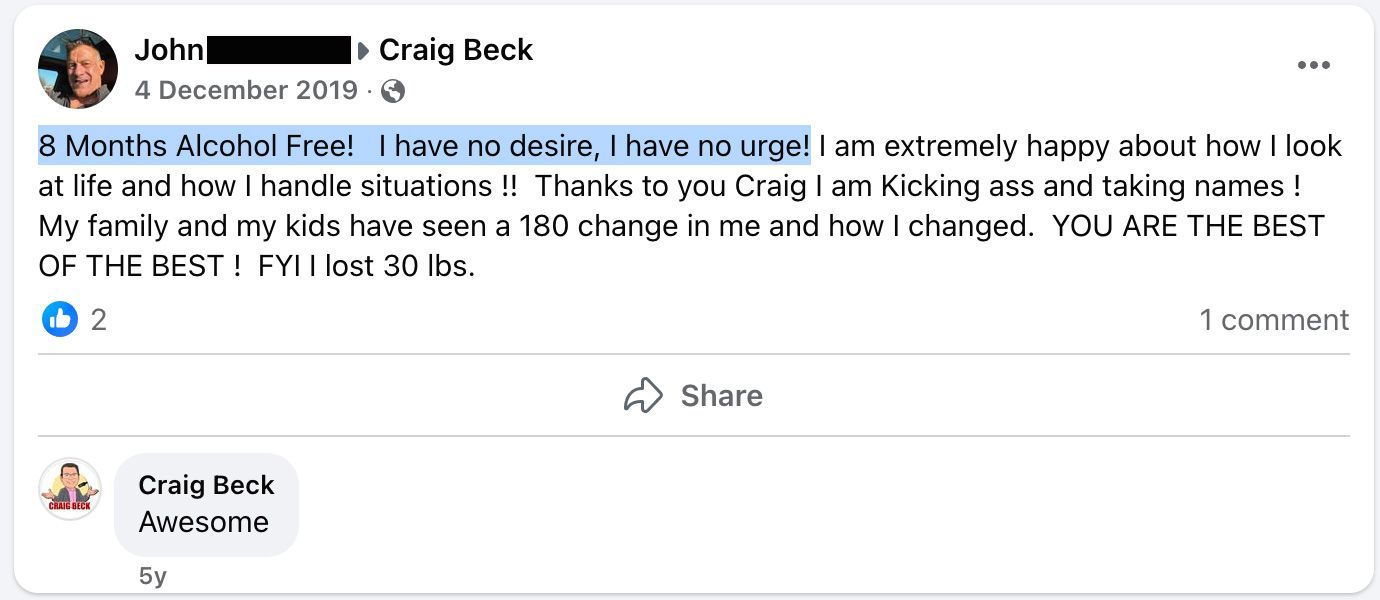
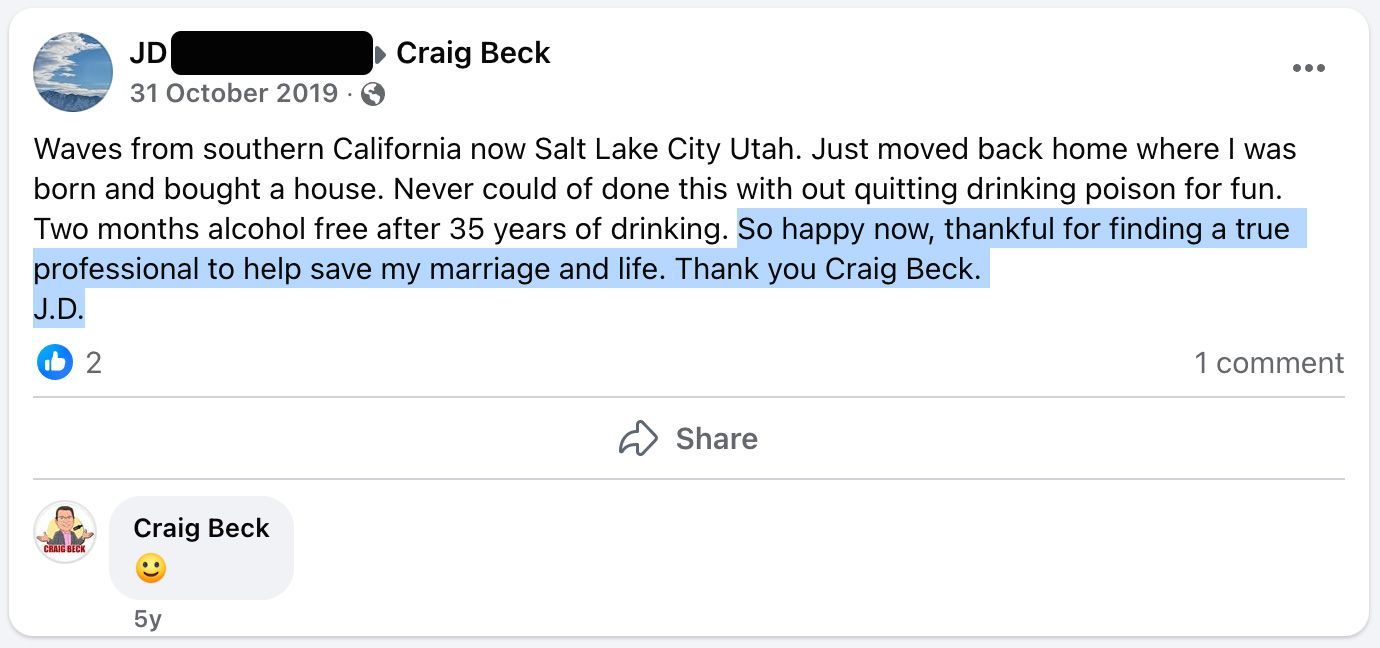
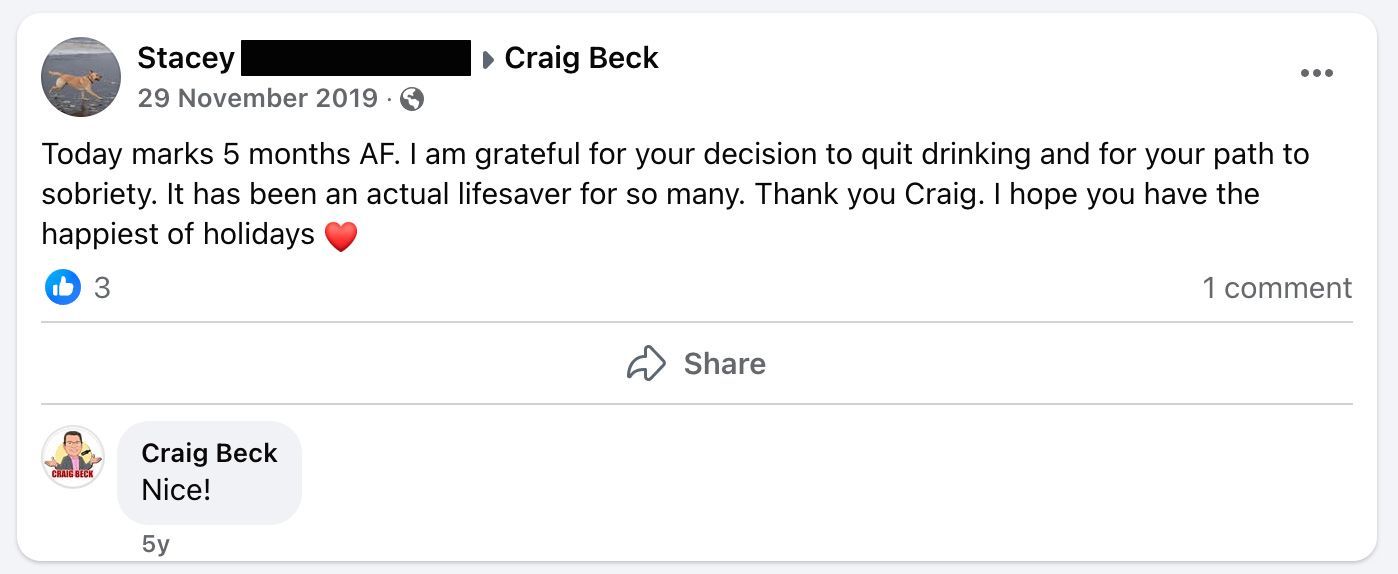
"Effortless Sobriety: The Proven Path to End Problem Drinking"
No one likes asking for help with their drinking—it feels personal and heavy. But if willpower alone hasn’t worked, it’s not because you’re weak. Research indicates that relying solely on grit is unsuccessful approximately 95 percent of the time. You’ve simply been using the wrong tool for the job.
Download my free ebook or decide now get started with the full course and learn:
- Why the game is rigged: how alcohol rewires your brain chemistry and makes “just trying harder” almost impossible.
- A science-based exit plan: practical steps that work quickly, privately, and on your terms.
- No awkward meetings or risky meds: forget the gimmicks—this is about smart strategy, not shame.
`Are you ready to step onto solid ground? Get off the fence, take action, and start taking back control—quickly, confidently, and without the struggle.
Over 250,000 Happy Sober Clients Can't Be Wrong:






